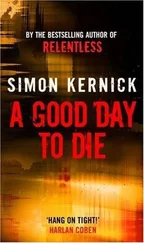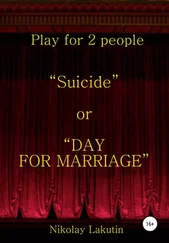Then he chances to look directly at a woman wearing a black hat with a long veil and a black dress past her ankles. She looks like Central Casting sent her for the role of a Greek widow. She slowly approaches and introduces herself.
Samantha Markowitz is from Erie. She has fair skin with freckles that blend in together, turning her cheeks a moist peach. She embraces him and trembles in spasms. Her 12-year-old red-haired twins sob. Then Lillian Johnson is weeping in his arms. She doesn’t have a horse farm. She lives in a brick house half an hour north of Harrisburg. She’s a nurse. Her sons, Joshua and Justin, are red-haired dermatologists in Philadelphia. They’re at least 6’3. They shake hands. His father’s other sons have excellent eye contact and their business cards are linen and embossed.
Samantha and Lillian are sturdy, handsome women, 40ish he guesses, and fleshy. Their voices are soft and their words sparse. Of course, Captain wouldn’t want women who dazzle. The spotlight must remain fixed on him, the narcissist.
“You all squared away?” the sheriff asks.
“Nobody’s all squared away,” Thomas remarks in his father’s tone.
“I hear you,” the sheriff replies.
“See much of him?” Thomas asks.
“Captain got more social when you went to college,” the sheriff says. “That euthanasia crisis dragged on. He knew the clinic was doomed. He expected malpractice suits and he wasn’t ready for the tournament circuit. Made his depression worse.”
Thomas remembers. His father had flown to California to discuss it in person. He shared a house with two other students and his father had ignored them.
“This euthanasia craze gives me pause,” Captain said. “It’s a plank of the PETA doctrine. They’re symbiotic. Point is, the fundamental principles are unsound.”
Tom asked how and why. He enjoyed his father that spring California day. Outside, layers of magenta Bougainvillea embossed the bamboo backyard fence. Four hummingbirds drank sugar water. He poured Captain coffee. His father’s hair hung in a braid halfway down his back. It resembled copperheads and milk snakes he found near 5 Hawk Creek at Cistern of the Sage.
His father wore a new hat, a black Stetson, blue jeans, his size 16 Doc Martin work boots, and a Grateful Dead T-shirt. He’d bought one of their cd’s.
“Which one?” Tom was curious.
“The one with Dylan covers,” Captain replied.
Then Captain explained that euthanasia was a terrible death. His father was restless and distracted and his eyes seemed cluttered. He paced, chainsmoked, and stared at the floor as he talked.
“You can’t fool some critter you’ve had for fifteen years. They recognize the carrier and the sight of it induces pure terror. In the clinic, they’re assaulted by the stench of critters in pain. They smell death.”
Captain said it could take him three days to give them a lethal shot. By then, the critters are sick with shock. Their owners don’t realize they’re consigning their pets to three days of abject suffering. In winter, maybe longer.
“What do you suggest?” Tom asked. He realized that if the clinic closed, his father would have an awkward transition.
“It’s a town of 3,400 with 8,870 registered weapons. They love that critter for fifteen years, sleep with it in winter, feed it from their plate. It’s their responsibility to end it,” Captain said. “Take the critter out back and put a bullet in his brain. Wait for a pretty day, sun shining. Let him see some robins. In a microsecond, it’s lights out.”
“You don’t have an ethical problem,” Tom ventured. “And who knows? Maybe you’re right. You’re senior faculty, Captain.”
Later his roommate asked, “What’s your father do? Is he a roadie?”
“He’s a vet,” Tom answered, a bit off-balance.
“Gulf War?” his roommate inquired.
“No. He’s a veterinarian,” Tom replied, his tone crisp. “And a professional poker player.”
“So he’s a professional liar,” his other roommate offered.
Tom smiled, uneasy, and rode his bike to the library. He hadn’t thought of his father that way before. A professional liar.
The Con weekly, Galileo, devoted a three-page article to his father. They included Captain’s allegations of conspiracy, and undue and misguided influence from PETA in Pittsburgh. His account of the plague of kittens and puppies criminally deserted by students was vivid. What did they imagine happened to critters dumped out of cars? Some magical intervention? Maybe Jesus would feed them? It was animal abuse and punishable by imprisonment and fines.
“I’m not an innkeeper,” Captain stated. “And I’m not an executioner.” The Galileo quoted him and put his statement in bold.
“That was his finest moment,” Sheriff Murphy says. “It had a kind of grandeur.”
Thomas agrees.
“Captain had a restless nature. He was cursed. Born bipolar,” the sheriff says. “He was lonely. He’d stay here for days.”
Thomas is surprised. “What did you guys do?”
“Smoke pot, watch TV, drink some and talk. He tried to teach me Texas Hold ’Em. I didn’t have the math for it. Plus, Captain was plain out lucky. You have to go the river, he’d tell me. It’s a game of blood. Every hand is seppuku. Captain had the statistics cold, and cards just came to him. Only two outs and he gets one. Flushes, full houses, trips. It was uncanny. But he was obsessed with law suits.”
Thomas remembered the quiet sustained furor in Wood’s Hole. His father closed the clinic a year later. By then he was playing professionally. He was on the circuit with men barely twenty-one, and constantly moving across the county, often by himself. Captain called him from airports. He’d come in second at the Commerce Club in L.A. and was going to Palo Alto next. Then Vegas, Atlanta, Houston and Miami. He’d take off a few days before going up the coast to Atlantic City and Foxwood Casino in Connecticut.
“I talked to Lily and Sam,” Sheriff Murphy says. “Good stock and hardworking. Agreeable. And he sure put his mark on those kids.”
“Accommodating,” Thomas decides. “Easy come, easy go.”
They are driving to the wake at the sheriff’s house. He notices Jimbo has the Governor General’s Gold Crescent on his key ring.
“I wanted a token,” Jimbo says, uncertainly. “You mind?”
Tom shakes his head no.
“Want something? Lawyer in Vegas has documents and keys for you.”
“He ever file a missing person report?” Thomas asks.
“No,” Jimbo says, after a pause. “He did not.”
“Captain didn’t have a single friend,” Thomas realizes.
“I wouldn’t say that,” the sheriff replies.
“I looked around. All I saw were people who paid him,” Thomas concludes. “And the ones with his chemistry. The ones he contaminated. Blood captives and customers.”
“He was a big man,” Jimbo notes. “What was he? 6’5”? 6’6”? Lot of terrain inside. Low lands and peaks and marshes.”
“Ever read Conrad?” Thomas suddenly asks.
“Dennis Conrad?” the sheriff replies.
“Tell me, Jimbo. What did he die from?” Thomas wants to know.
“One 9-millometer to the back of the head. Instantaneous. Robbery. Kid killed him for the poker bracelet,” Jimbo tells him.
Mourners mill around the living room and sit at a picnic table outside. He stands with the sheriff in the kitchen.
“Did you know about them?” Thomas glances in the direction of the living room. Lillian and Samantha sit on the sofa, one child on either side, like human bookends.
“No clue,” Jimbo says.
“Think they knew about each other?” He studies the sheriff’s face. He’s grown a gray moustache that suits him. Sunlight turns it silver. He’s handsome, not distinguished, but a man who’s seen his share. A man with stories, rugged and confident. And worldly.
Читать дальше






![Джон Харгрейв - Mind Hacking [How to Change Your Mind for Good in 21 Days]](/books/404192/dzhon-hargrejv-mind-hacking-how-to-change-your-min-thumb.webp)





